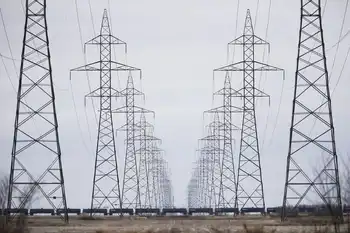CanWEA says wind must play major role in nationÂ’s future
OTTAWA, CANADA - The Canadian Wind Energy Association (CanWEA) welcomed the federal government's commitment to clean energy in its 2008 Speech from the Throne. The federal government outlined its commitment to draw 90 per cent of electricity from renewable resources by the year 2020, and in support of this ambitious goal the "Government will continue to provide support for biofuels, wind and other energy alternatives."
"This is welcome news, especially given the economic climate," said Robert Hornung, CanWEA President. "We believe wind energy can and must play a significant role in Canada's clean energy future while helping to create new investment and jobs. Our industry goal of meeting 20 per cent of the country's electricity needs with wind energy by the year 2025 will generate $79 billion in new investments and create more than 52,000 new jobs."
Wind Vision 2025 - Powering Canada's Future, argues that Canada has the potential to make wind energy the country's next great economic opportunity, while also reducing greenhouse gas emissions and addressing other environmental concerns.
A recent national poll undertaken by The Strategic Council, in conjunction with CanWEA, found that Canadians also overwhelmingly support further wind energy development. The poll found that 87% of Canadians support the 20 per cent by 2025 wind-energy vision, and the majority of respondents - a combined 62 per cent - chose wind energy as their first and second choice for electricity source.
"We have the potential, the ability, and the support of Canadians," said Hornung. "To make this a reality we need the federal government to play a strong leadership role. We look forward to working with the government to define and implement the actions it will take to support wind energy development in the future."
Related News

Explainer: Europe gets ready to revamp its electricity market
STOCKHOLM - European Union energy ministers meet on Monday to debate upcoming power market reforms. Brussels is set to propose the revamp next month, but already countries are split over how to "fix" the energy system - or whether it needs fixing at all.
Here's what you need to know.
POST-CRISIS CHANGES
The European Commission pledged last year to reform the EU's electricity market rules, after record-high gas prices - caused by cuts to Russian gas flows - sent power prices soaring for European companies and citizens.
The aim is to reform the electricity market to shield consumer energy bills from short-term…




